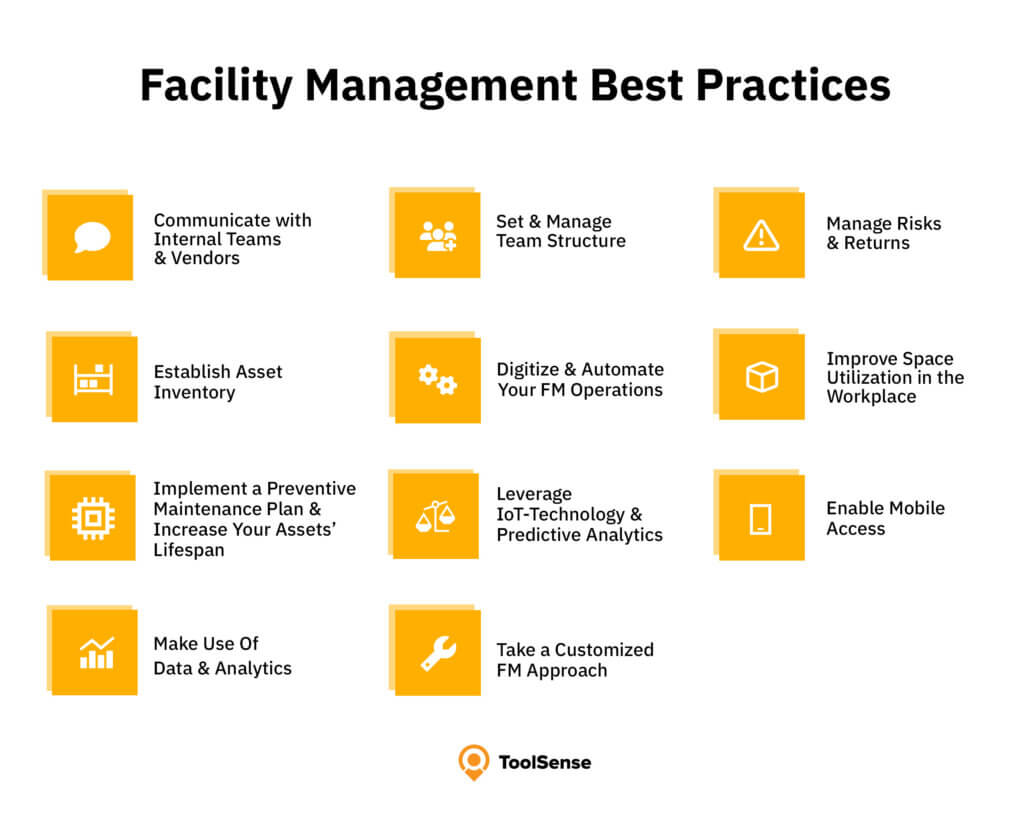Total Facility Management Explained: A Manual for Property Owners
Why Total Facility Management Is Vital for Business Success
Total Facility Management (TFM) serves as a keystone for service success by harmonizing varied operational facets such as maintenance, space use, and precaution. This combination not just improves efficiency however also lines up facility management with overarching business objectives. As organizations navigate an affordable landscape, understanding the complex benefits of TFM can be essential in driving cost effectiveness and boosting worker performance. The ramifications of taking on TFM expand far beyond prompt functional gains, raising vital inquiries about its long-lasting effect on business resilience and competition. What lies underneath this essential framework?
Recognizing Total Facility Management
Total Facility Management (TFM) encompasses an extensive method to handling an organization's buildings and connected services to guarantee optimal functionality, safety, and efficiency. TFM incorporates numerous techniques, consisting of upkeep, operations, area management, and safety methods, to develop a natural framework that supports an organization's core purposes.
At its core, TFM intends to enhance the processes associated with facility management, minimizing redundancies and boosting solution distribution. This strategy includes the sychronisation of activities connected to residential property management, such as repairs, cleansing, and power management, to cultivate an efficient atmosphere for employees and stakeholders alike. TFM likewise emphasizes the relevance of carrying out best techniques and ingenious technologies to boost service quality and minimize operational prices.
By aligning facility management activities with organizational objectives, TFM boosts overall efficiency while ensuring compliance with wellness, safety, and environmental guidelines. Hence, TFM serves not only as a logistical function yet additionally as a strategic possession, adding to a company's long-term sustainability and growth.
Secret Advantages of TFM
Leveraging a thorough approach, organizations that carry out Total Facility Management (TFM) unlock a myriad of advantages that add to total business success. One of the primary advantages of TFM is the enhancement of operational effectiveness. By settling facility solutions under a unified management framework, companies can simplify procedures, lower redundancies, and improve communication across divisions.
Moreover, TFM promotes an aggressive upkeep strategy, which minimizes downtime and extends the life-span of facilitiess and tools (Total Facility Management). This aggressive strategy not just improves efficiency however likewise fosters a safer working environment, ultimately leading to greater staff member contentment and retention prices
Furthermore, TFM assists in much better resource allocation by giving understandings into facility efficiency metrics. Organizations can recognize areas for improvement, permitting them to make enlightened decisions that align with their strategic objectives.
TFM and Expense Efficiency
Attaining expense effectiveness is a fundamental objective for organizations, and Total Facility Management (TFM) plays a crucial function in this endeavor - Total Facility Management. By incorporating different facility solutions under a single management framework, TFM makes it possible for organizations to enhance procedures and reduce redundancies. This all natural method brings about substantial price financial savings, as it gets rid of the demand for multiple suppliers and simplifies purchase procedures
In addition, TFM fosters aggressive upkeep approaches, which reduce the danger of pricey repairs and downtime. By focusing on preventive actions, organizations can expand the lifespan of their properties and reduce unforeseen expenditures. Furthermore, TFM includes energy management techniques, which can drastically cut energy costs with reliable resource use.
The Source centralization of information and analytics within TFM allows organizations to make enlightened financial decisions. By determining fads and areas for enhancement, TFM makes it possible for customized techniques that additionally boost cost management. Moreover, the scalability of TFM remedies ensures that as organizations expand, their facility management techniques remain efficient and lined up with financial goals.
Enhancing Staff Member Performance
A well-managed facility can dramatically boost employee productivity by creating a favorable work atmosphere. Efficient Total Facility Management (TFM) guarantees that all aspects of the work environment-- from illumination and temperature to cleanliness and safety-- are optimized. When employees operate in a space that is comfy and properly maintained, they are more probable to concentrate on their tasks, resulting in greater result and work contentment.
In addition, TFM can boost partnership with the tactical design of public locations, motivating teamwork and innovation. By spending in the ideal resources and technology, companies can assist in seamless communication and simplify operations, even more enhancing performance. Routine maintenance and punctual actions to facility concerns stop interruptions that can or else hinder efficiency.
Furthermore, a safe and healthy and balanced job environment, sustained by TFM methods, reduces absence and promotes health, directly associating with enhanced performance levels. Inevitably, focusing on facility management is a financial investment not only in physical properties however additionally in the workforce itself. By cultivating an atmosphere that sustains worker requirements and preferences, companies can cultivate a much more engaged and reliable workforce, driving total success and competitive benefit.
Future Trends in TFM
Welcoming technical advancements is readied to reshape the landscape of Total Facility Management (TFM) in the coming years. As the demand for efficiency and sustainability boosts, TFM will progressively embrace wise structure innovations, incorporating Web of Points (IoT) gadgets to take care of and check facility procedures in real-time. This change will allow positive maintenance, considerably boosting and lowering functional expenses service delivery.

Sustainability continues to be an important focus, with TFM experts anticipated to prioritize environment-friendly practices. This includes making use important link of renewable investigate this site resource resources and maximizing waste management systems to minimize the carbon impact of facilitiess.
Remote management abilities will certainly additionally be increased, allowing facility managers to supervise operations from essentially anywhere. This adaptability will certainly come to be vital as organizations adapt to hybrid work models. In summary, the future of TFM is poised for transformation through innovation, sustainability, and improved operational techniques, making sure services stay affordable in a progressing landscape.
Final Thought
By integrating various functional functions, TFM boosts effectiveness and aligns facility management with business objectives. As organizations progressively adopt lasting practices and cutting-edge technologies, the relevance of TFM will proceed to grow, making sure long-term functional effectiveness and competition in an evolving market.
